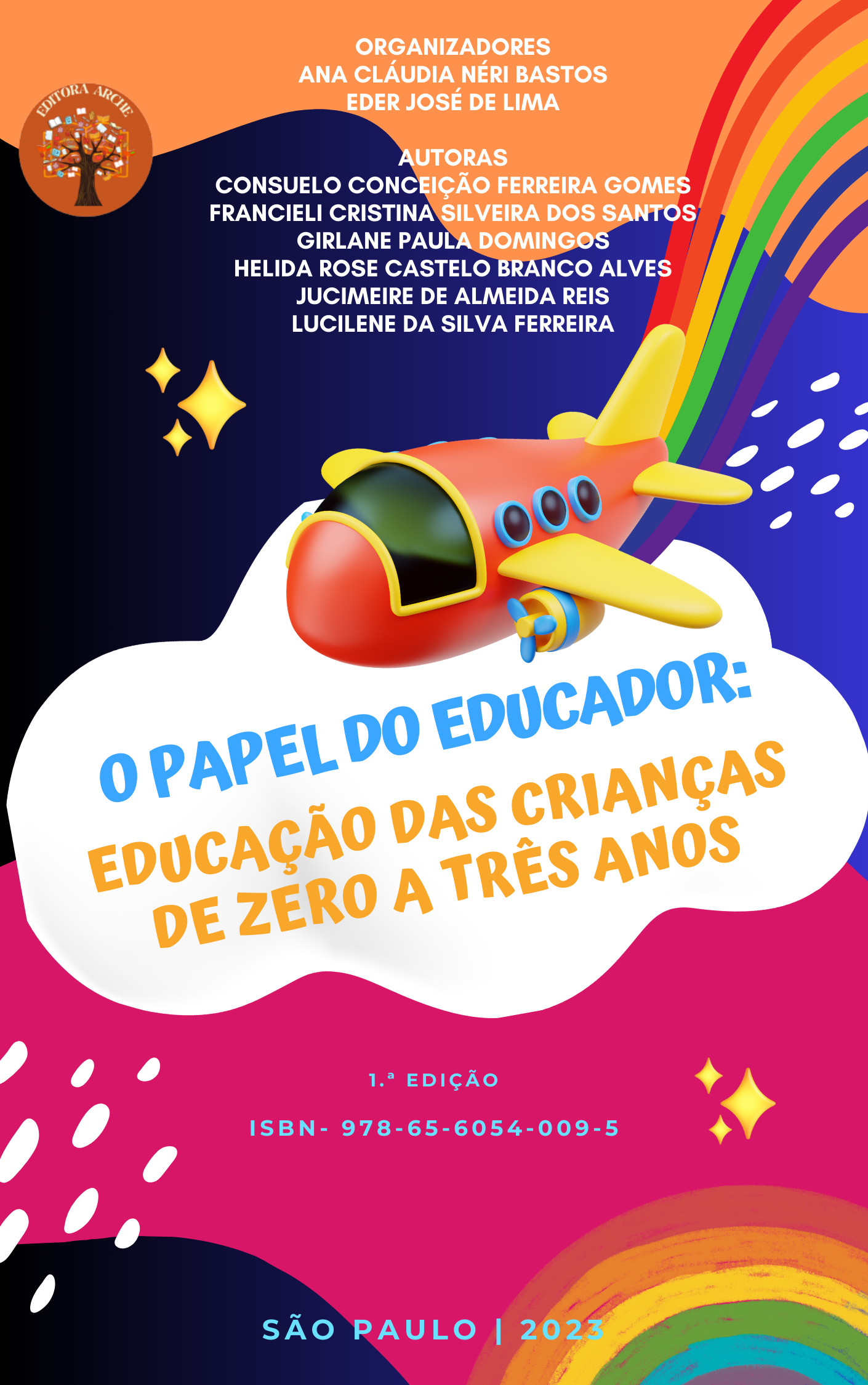O PAPEL DO EDUCADOR: EDUCAÇÃO DAS CRIANÇAS DE ZERO A TRÊS ANOS
Palavras-chave:
Criança. Educação. Infância.Resumo
Este estudo reflete a importância de se ter um educador qualificado na educação de crianças de zero a três anos. Isto requer que o mesmo tenha conhecimentos sobre o conceito de criança que foi historicamente construído. Este conhecimento permite ao professor compreender como acontece o processo de desenvolvimento e aprendizagem dos pequenos, para que este proporcione a eles, em suas práticas educativas, estímulos significativos, de modo a visar sempre o desenvolvimento integral da criança.
Os conceitos de infância construídos ao longo da história nos mostram diversos olhares sobre a criança, de acordo com o seu momento histórico. Na contemporaneidade, consideramos que não há um conceito único de criança, pois parte de uma construção social elaborada pela criança e para criança, num conjunto de relações sociais. Mesmo a infância sendo um fato biológico, como ela é compreendida, é socialmente determinada. Dessa forma há muitas crianças e infâncias. A partir desta análise, me veio o interesse de atentarmos nossos olhares sobre as práticas de ensino e aprendizagem nos primeiros anos da infância, pois, a criança pequena emerge como co-construtora desde o início da vida.
O objetivo deste livro é suscitar uma reflexão sobre o papel do educador na educação das crianças de zero a três anos, para isso discutiremos sobre o desenvolvimento e aprendizagem da criança de zero a três anos, que corresponde ao primeiro ano de vida e a primeira infância, indissociável ao processo educativo intencional e sistematizado, baseado no conhecimento do desenvolvimento da criança conforme os pressupostos da Teoria Histórico-Cultural de Vygotsky e seus precursores.
Neste livro, busca-se compreender o conceito de infância e as regularidades do desenvolvimento infantil, visando contribuir para que a prática educativa esteja permeada pelo conhecimento científico por parte dos educadores, e da conscientização de que sua atuação intencional e sistematizada pode refletir nas máximas possibilidades de desenvolvimento da criança.
A proposta leva a uma discussão sobre a criança pequena, tanto ao que se refere ao conceito que foi historicamente construído, quanto ao seu desenvolvimento físico e cognitivo. Tem a intenção de compreender o porquê que as crianças de zero a três anos muitas vezes são assistidas em suas necessidades físicas e esquecidas de que são sujeitos de aprendizagem pelo educador. Como o ambiente deve ser organizado para que a aprendizagem infantil seja significativa. Como organizar a prática educativa para que a criança seja um indivíduo ativo, crítico e reflexivo?
Nesse sentido, apresentam-se alguns pressupostos fundamentais para a compreensão da correlação existente entre educação e desenvolvimento humano. Dentre eles estão a premissa de demonstrar que o desenvolvimento envolve, simultaneamente, a emoção e cognição, dando um sentido indissociável ao desenvolvimento/aprendizagem; identificar as práticas educativas no primeiro ano de vida e na primeira infância como meio de formação integral da criança, de modo a primar pelo seu desenvolvimento físico, cognitivo e social.
No capítulo 1, abordamos o conceito de criança e de infância ao longo da história que está interligada à cultura em que ela vive e também à sociedade que os adultos criam para ela, sofrendo assim as influências de sua época. E como acontece o processo de desenvolvimento e aprendizagem, mostrando são indissociáveis e ocorrem simultaneamente.
No capítulo 2, foram explicitados conceitos principais do desenvolvimento da criança de zero a três anos com enfoque na mediação do adulto desde o nascimento à primeira infância.
No capítulo 3, destacamos o papel do educador e suas práticas na educação de zero a três anos, pois, cabe a ele ter conhecimento do processo de desenvolvimento infantil para que suas experiências junto às crianças propicie uma aprendizagem significativa.
Finalmente, são apresentadas as Conclusões.
Downloads

Downloads
Publicado
Como Citar
Licença
Atribuição CC BY
